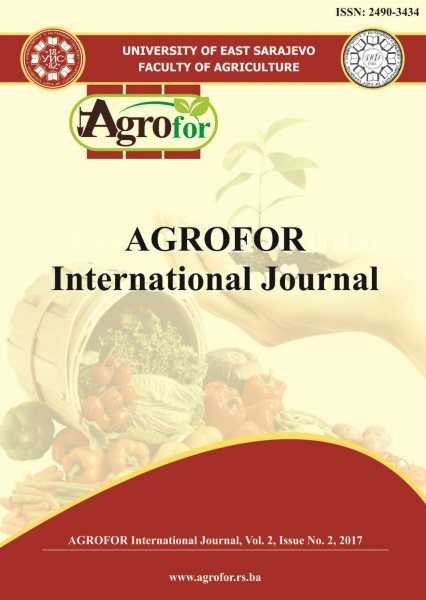REGRESSION ANALYSIS OF ROTATIONAL INTENSITY, CROP DIVERSITY INDEX, LAND UTILIZATION INDEX AND YIELD EFFICIENCY IN BIO-INTENSIVE AND CONVENTIONAL FARMING SYSTEMS IN NEPAL
DOI:
https://doi.org/10.7251/AGRENG1702124RAbstract
This study was conducted in Udayapur district, Nepal. A questionnaire-based
survey with 100 household heads along with field visit and personal interaction
with the concerned farmers were conducted to gather required information. Data
were analyzed to compute rotational intensity (RI), crop diversity index (CDI),
land utilization index (LUI), and yield efficiency (YE). Regression analyses were
done to reveal relationships among these traits. Bio-intensive farming system
(BIFS) farmers were found to practice scientific crop rotation substantially more
than conventional farming system (CFS) farmers both in rice-based and maizebased
cropping systems. In this study, higher RI, CDI, LUI and YE were found in
sustainable bio-intensive farming system (BIFS) as compared to conventional
farming system (CFS). The study has revealed strong positive relationship of RI
with CDI and LUI in BIFS, CFS and in general. Cropping system both in BIFS and
CFS with scientific crop rotation that ensures higher CDI and LUI is recommended
for increasing yield efficiency. Direct positive relationship among RI, CDI and LUI
has been revealed by this study as a rule; and has suggested to be used in validating
yield efficiency of optional farming system as compared to the mainstream
conventional farming system.

